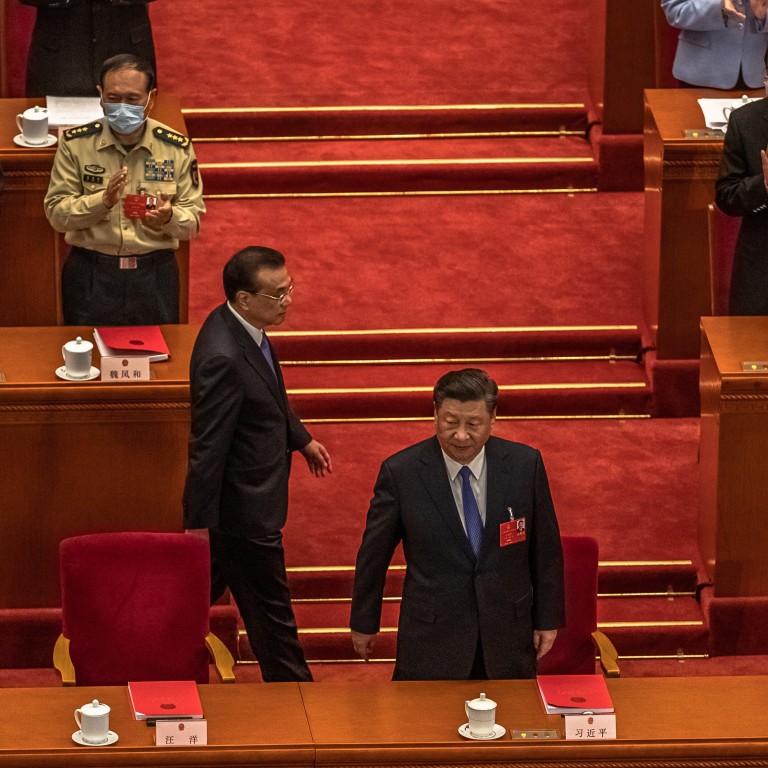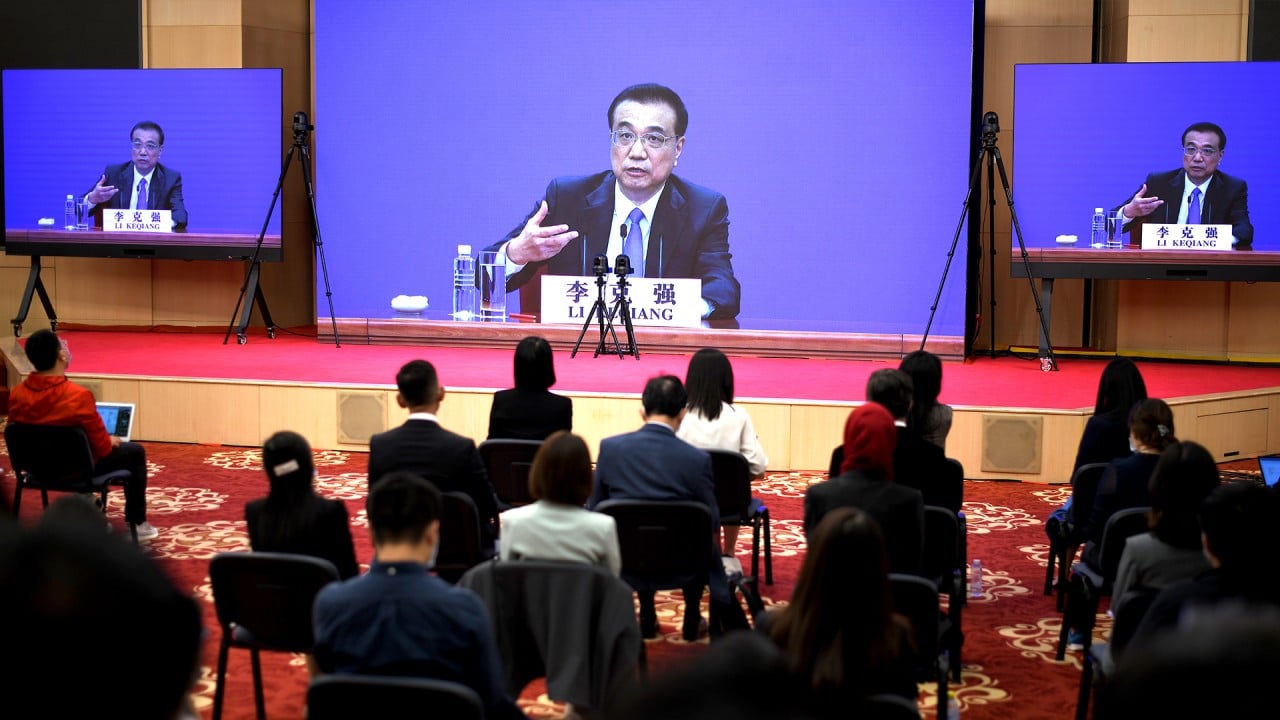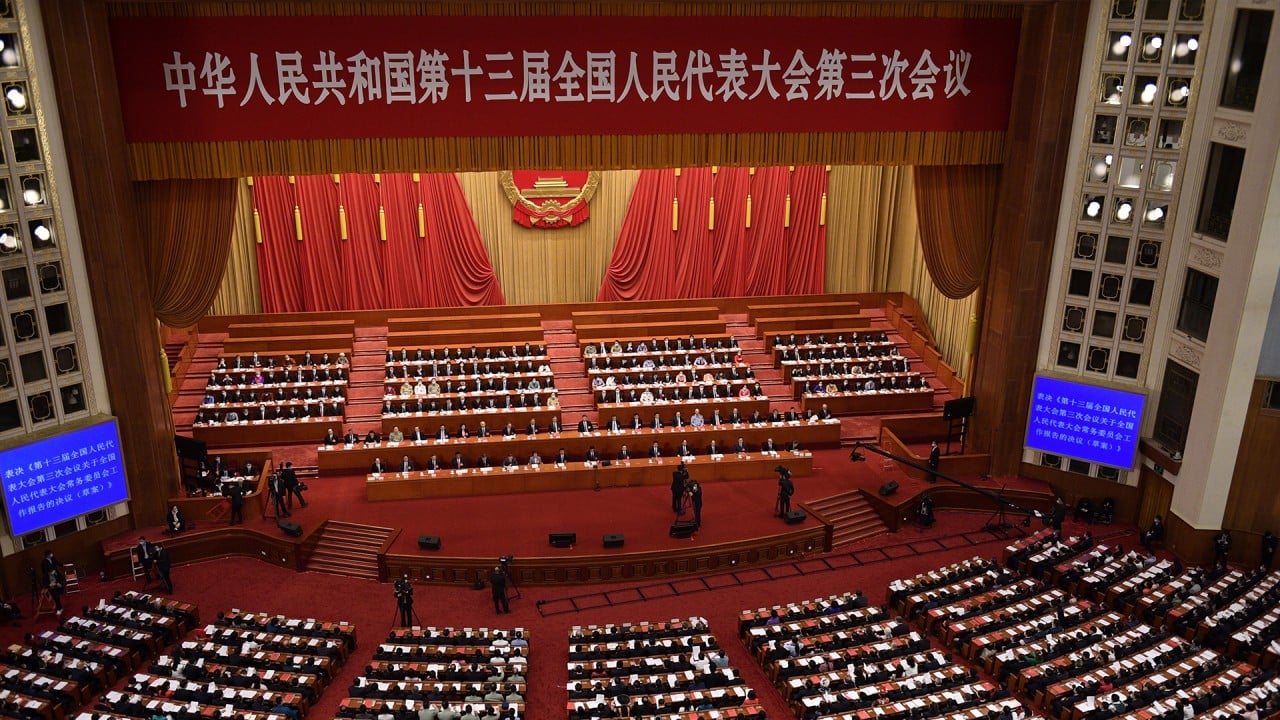
China pledges largest-ever economic rescue package to save jobs and livelihoods amid coronavirus
- Premier Li Keqiang confirmed the 4 trillion yuan (US$559 billion) worth of cost cuts for the country’s struggling factories and merchants on Thursday
- The combined cuts in business costs will be carried out on top of 2 trillion yuan in additional fiscal spending and government bond issuances
China has pledged a package of 4 trillion yuan (US$559 billion) worth of cost cuts for the country’s struggling factories and merchants in 2020, the largest economic rescue plan in its history, in an enhanced effort to save jobs that were put at risk by the coronavirus outbreak, Premier Li Keqiang confirmed on Thursday.
The combined cuts in business costs, which include tax exemptions, lower bank interest rates and waived contributions to social welfare funds as well as reduced prices for utilities such as electricity, will be carried out on top of 2 trillion yuan in additional fiscal spending and government bond issuances.
“We have been saying that we won’t flood the market [with excessive liquidity]. It is still the policy,” Li said. “But extraordinary times call for extraordinary efforts. We are now providing water so that the fish can survive – fish will die without enough water, but there will be bubbles if we provide too much water.”
If our targets of protecting jobs, livelihoods and market entities can be achieved, we’ll be able to achieve a positive economic growth rate in 2020
In addition, Li said Beijing has many fiscal, financial and social security policies in reserve, and it will roll out additional policy support “without hesitation”.
“Employment is the biggest issue for people’s livelihoods,” he said. “China has a labour force of 900 million – these are 900 million mouths waiting to be fed if there are no jobs, but 900 million pairs of hands to create wealth if there are jobs.
“If our targets of protecting jobs, livelihoods and market entities can be achieved, we’ll be able to achieve a positive economic growth rate in 2020, and we are striving to obtain a quite substantial growth rate to push China’s economy ahead.”
According to Li, China still has 600 million people with monthly income of 1,000 yuan (US$140) or less, even though the national average per capita income last year was 30,733 yuan (US$4,300).
“The poverty alleviation task is getting heavier as some people may fall back again into poverty due to the coronavirus,” Li added.

05:11
Chinese Premier Li Keqiang on pandemic, China-US tensions and Hong Kong
The International Monetary Fund estimated in April that China’s economic growth rate could be around 1.2 per cent in 2020, which is higher than the projected fall of 5.9 per cent in the United States, but much lower than last year’s reading of 6.1 per cent. Most private economists put China’s 2020 gross domestic product (GDP) growth rate at between 1.5 per cent and 2.5 per cent this year.
The central government’s fiscal deficit and the size of its special treasury bond issue, unveiled at the end of last week, also dropped below market expectations.
“Some people said that the size of support policies fell below expectations, and I do hear such feedback,” Li said. “To counter the shocks, we need to master the art of both size and timing. We’ve already released a sizeable policy response. It is pretty forceful.”
In addition, Beijing has also given local governments authority to issue another 1.6 trillion yuan of special purpose bonds that will be used to fund infrastructure construction.
Fitch Ratings analysts, led by Andrew Fennell, said the Chinese government is adopting a “restrained” approach to policy stimulus, which could support economic recovery while avoiding the build-up of financial risks.
Saddled with debt, China cannot be counted on to bail out the rest of the world
But, they added, Beijing could opt for a more aggressive stimulus if “GDP fails to recover in the second half of 2020”.
“Saddled with debt, China cannot be counted on to bail out the rest of the world,” she said.
During the traditional press conference delivered by China’s premier on the final day of the NPC, Li also made conciliatory remarks about China-US relations despite growing threats of a new cold war between the two powers, suggesting there was room for cooperation.

02:33
China’s top legislature approves national security bill for Hong Kong
“[We] can say that a decoupling of the two major economies will bring nobody any good but harm the world instead,” Li said.
Li also made clear that Beijing’s position on Taiwan – another major flashpoint with the US – remained unchanged and that the mainland was open to dialogue with any political parties from the island that respected China’s sovereignty claim.
Li’s press conference, which came after the NPC was delayed two and half months by the coronavirus, was the first not to be conducted face-to-face with the media, as the premier appeared via a screen in the media centre.
Li is officially second only to President Xi Jinping in China’s political hierarchy, but is considered less influential than his predecessors Wen Jiabao and Zhu Rongji, after losing control of certain areas of governance, particularly diplomacy and the military.



